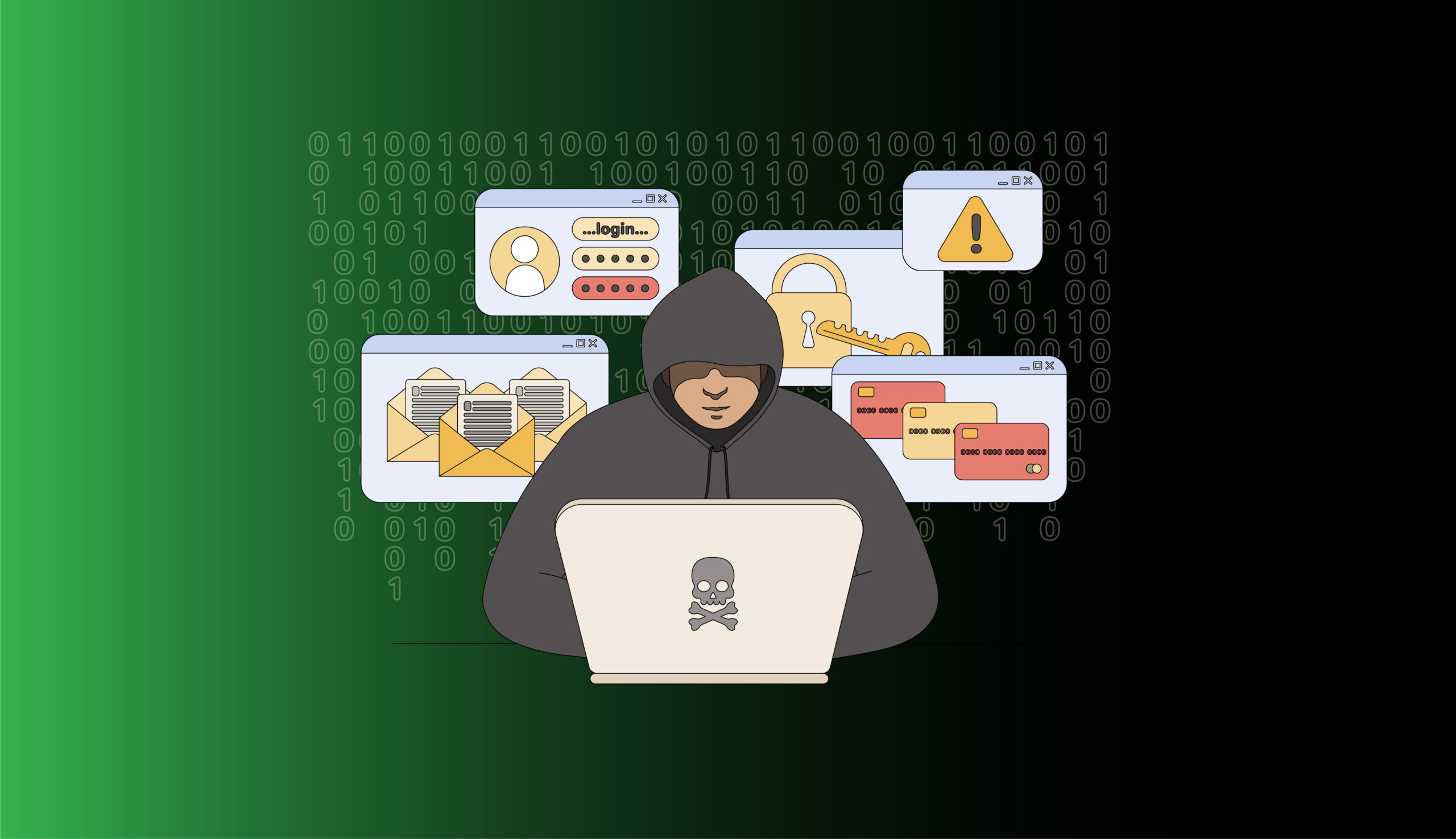Fraud Alert: Be Aware of Common Financial Frauds and How to Avoid Them

Common Financial Frauds and How to Avoid Them
Hey finance explorers! 😄
Greetings! We hope you’re having a wonderful week
In the fiscal year 2020–2021, India encountered an average of 229 banking frauds every day, as reported in a survey by Business Today. Shockingly, only a fraction of these losses, less than 1%, was fully recovered. With the growing prevalence of digital financial transactions, the risk of falling prey to financial fraud has risen a lot. Tragically, there has been a noticeable surge in the occurrence of financial scams and fraudulent activities in recent years.
To effectively navigate this landscape and protect your hard-earned money, it is important to familiarize yourself with the various types of financial fraud prevalent in India and equip yourself with the necessary knowledge and tools for protection.
Let’s delve into the modus operandi of these frauds and explore how to shield yourself from the clutches of fraudsters.
🕵️♂️How do Perpetrators Carry Out Financial Fraud?
Phishing and Social Engineering
This involves fraudsters tricking people into revealing personal information through fake emails, messages, or calls. They pose as trustworthy entities and use urgency or rewards to deceive victims.
For example, an email pretending to be from your bank may ask you to update your account details, leading to unauthorized access. Remember, legitimate organizations won’t request sensitive details via email, SMS or WhatsApp messages. If targeted, alert your bank or the organization, report the fraud, and provide relevant information.
To protect yourself from phishing and social engineering, be cautious of unsolicited emails, messages, or calls asking for personal information. Verify requests directly with the organization using the official contact information. Don’t click on suspicious links or download attachments, and report any potential scams promptly.
Identity Theft
Identity theft is where your personal information is stolen, like your Aadhaar card details, or bank account credentials. Fraudsters then use this stolen information to pretend to be you.
For example, they may open fake bank accounts in your name, make unauthorized purchases, or apply for loans and credit cards using your identity. This can result in huge financial harm and cause immense stress for the victims.
Always be cautious and never share your personal details, such as bank account information or Aadhaar card details, with anyone you don’t know and trust. Safeguarding your personal information is crucial to prevent identity theft.
Remember, once fraudsters get hold of your personal details, they can use them to open fraudulent bank accounts, make unauthorized purchases, or apply for loans and credit cards in your name.
Card Skimming
Be cautious of skimming devices! Fraudsters secretly attach these devices to ATMs, card machines, or gas pumps. When you use your card, the skimmer steals your card details, like the card number and PIN.
They use this information to make fake cards or unauthorized transactions.
Imagine inserting your card into an ATM, and without realizing it, a hidden device captures your card details, allowing criminals to access your bank account and steal your money.
Remember, be cautious and attentive when using ATMs or card machines. Inspect the card reader for any signs of tampering or suspicious attachments. Shield your PIN entry and regularly monitor your bank statements for any unauthorized transactions.
Ponzi Schemes
Ponzi schemes promise huge profits to investors on their investment, and some people even earn profits. But here’s the catch: they give you profits from your own money (or use money from new investors to pay older ones) and make it look like they have generated huge returns. You believe this, and end up investing an even bigger sum. It’s like a never-ending chain. Eventually, when new investors stop joining, the whole thing falls apart, and the scammers vanish with everyone’s money.
It’s like someone promising you incredible returns on an investment in a new company, but they’re actually just using your money to pay off earlier investors instead of creating real profits.
Always, be cautious of investments promising extraordinary returns. Conduct thorough research on investment opportunities and verify their legitimacy.
You better consult with trusted financial advisors before making any investment decisions. Avoid investing large sums based solely on promises or referrals… Safeguard your finances by staying informed and sceptical.
Online Investment Frauds
Watch out for fraudulent investment platforms! They promise unbelievably high profits on investments like stocks or cryptocurrencies. But here’s the trick: these platforms aren’t authorized or regulated properly.
They trick people into investing their money, but once you do, you’re stuck. You can’t get your money back, and those promised profits never materialize. Let’s say, someone approaches you with an investment opportunity, claiming you’ll double or triple your money in no time. They show you impressive charts and graphs, making it seem like a sure thing.
Excited, you invest your hard-earned money, only to realize later that it was all a scam. You can’t withdraw your funds, and the promised profits were nothing but empty promises.
For protecting yourself from online investment fraud, be sceptical of unrealistically high-profit promises. Always research and verify the legitimacy of investment platforms before investing. Check for proper authorization and regulation. Don’t rush into investments based on pressure or flashy presentations. Exercise caution and seek advice from trusted financial professionals.
Lottery or Prize Scams
In these scams, people receive messages saying they’ve won lotteries or prizes. But to get the winnings, they’re asked to pay fees or share personal information. These scams take advantage of our wish for quick money.
Unfortunately, the prizes don’t actually exist, and victims not only don’t get any extra money as promised by the scheme but also lose their own.
Let’s say you receive a text message claiming you won a luxury vacation. Then you will be asked to pay a small fee to claim the prize. However, after you pay, claimers disappear, and you realize there was no prize, to begin with. You end up losing your money instead of winning a vacation.
To safeguard yourself from lottery or prize scams, exercise caution when receiving unsolicited messages or calls about winning prizes. Legitimate entities don’t request fees or personal information for claiming winnings. Refrain from sharing sensitive details or sending money to unknown sources.
Post Office Fee Parcel Delivery Scam
The Post Office Fee for Parcel Delivery scams has become increasingly prevalent. Victims receive messages or emails claiming the arrival of a parcel, requiring payment for delivery. Believing the communication, they proceed to make an online payment using their credit card.
However, this act unknowingly exposes them to fraudsters who exploit the opportunity to obtain unauthorized access to their credit card details. It is crucial to exercise caution and verify such messages to protect against this deceptive scam.
Imagine receiving an email that says you won a special prize and need to pay a small fee to get it delivered to your doorstep.
Excited! you make the payment using your credit card. But instead of receiving the prize, you find out that it was all a scam! The scammers tricked you into giving away your credit card details, and now they have access to your money.
Always double-check before paying for any parcel delivery fees to stay safe from this sneaky scam.
Simple Ways to Protect Yourself From Financial Fraud:
⚠️Be cautious of unexpected emails, messages, or calls asking for personal or financial information. Always double-check the sender’s legitimacy using official contacts.
⚠️Use strong and unique passwords for your financial accounts. Activate two-factor authentication for added security.
⚠️Be careful when sharing personal details, especially passwords for bank accounts or credit cards. Only give this information to trusted sources when necessary.
⚠️Keep your devices updated with the latest security updates and have antivirus software installed. Use secure Wi-Fi networks for financial transactions, avoiding public or unsecured networks.
⚠️Regularly check your bank statements, credit card bills, and financial transactions for any suspicious activity. Report anything unusual immediately.
⚠️Use secure and reputable payment platforms when making online payments.
⚠️Research and verify the legitimacy of investment platforms or schemes before investing your money. Seek advice from trusted financial advisors.
⚠️Report any suspicious or fraudulent activities to your bank and the cyber cell of the police station.
By being careful, using strong passwords and 2FA, protecting personal information, reviewing financial documents, using secure payment methods, and reporting any concerns, you can protect yourself from financial fraud.
Stay cautious and protect yourself!😊








